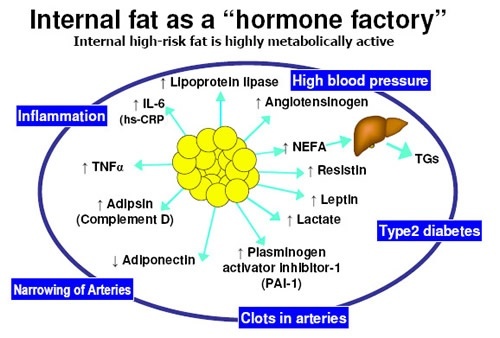Medical doctor Jason Fung has written a book called The Obesity Code, which gives us great insight into losing and/or maintaining a healthy weight. It is fascinating that during most of human evolution, humans went 12-18 hours without eating. The reason is they were hunting animals and gathering the other food – they could not just go to their kitchens and get food any time they wanted.
In the past, as it is today, if we eat plenty of fats, ample plants (for nutrients), and some protein, we will be satisfied during this time of fasting. The problem we have today is we eat too many carbohydrates all through the day (bread, yogurt, fruits, sugary snacks, etc.), which make our insulin levels go up down all day, creating fatigue and hunger. I have seen the power of intermitted fasting for weight loss with a family member. It is incredible.
What are the benefits? Intermittent fasting:
- Decreases food cravings.
- Teaches you that you’re the master of what you eat, not the food.
- Allows you to lose weight.
- Increases mental clarity and improves energy.
- Helps turn on longevity genes, not self-destructive genes.
- Significantly reduces chances of developing the leading causes of death in our country (i.e. cardiovascular disease, diabetes, cancer, and other chronic diseases).
- Allows for cellular detoxification and healing, resulting in a healthier you.
- Resets and increases your metabolism.
- Decreases feelings of sadness and depression.
- Improves sleep.
- Let’s you enjoy many additional benefits—read the book!
What are the risks of being overweight? Extra body fat:
- Makes heart work harder.
- Makes muscles work harder, leaving you with less energy.
- Leads to organ malfunction due to visceral fats (fat between organs).
- Produces estrogen, cortisol (stress hormone), leptin (causing leptin resistance, which leads to food cravings), inflammation chemicals (vascular problems), angiotension (increase blood pressure), insulin (leading to insulin resistance and diabetes), and many other chemicals that cause ill heath as the picture below explains.
There is excellent value in intermittent fasting, especially if we consume foods packed with nutrition when we do eat. Intermittent fasting techniques are grouped into two categories. Whole-day fasting involves regular, one-day fasts. I’m recommending to you the time-restricted feeding form of intermittent fasting, in which eating is limited to a certain number of (consecutive) hours each day.
Here is how a time-restricted feeding intermittent fast – where eating is limited to 6-7 hours (lunch through supper) – would look:
- Have black coffee or tea, or lemon water in morning (no breakfast).
- Ideally, complete a workout to get blood pumping and wake up body.
- At lunch, eat salad with meat, fish, or eggs; avocado; colorful vegetables; nuts and fruit.
- Consume a mid-afternoon snack of some fruit, vegetables, or nuts.
- For supper (around 6pm), eat a hardy meal. Have just a little more than usual, sticking to healthy foods like vegetables, lentils, quinoa, fish, meats, sweet potatoes, squash, etc. Cut down on the breads, pastas, and white potatoes. A dessert of your choice may follow this evening meal, but don’t over indulge.
- Go to bed by 9:30 and sleep until 5:30 – get at least get 7 hours of rest.
- Repeat steps 1-5 the next day.
It will take a little getting used to at first, but then it will be routine, and you will be feeling better.
A few notes on intermittent fasting
- I would do it for 5 days and have 2 days where you eat a breakfast such as eggs and bacon, not yogurt, milk, and cereal. Add extra fat like avocado, flaxseed oil, cod liver oil, olive oil, or coconut oil. That will ensure you will not have anything the spikes blood sugar level at breakfast.
- I would use intermittent fast for 4-6 months. Then switch to a low carb, higher fat, and moderate protein breakfast. Lose the weight and try maintaining it with low carb breakfast.
- Try your best to continue to fast from 6pm to 6am, or at least 12 hours, on a consistent basis. It is not about being perfect but staying consistent with the fasting and eating foods that are packed with nutrition.
- Don’t consume bread, pasta, donuts, and so forth more than once or twice a week. If you eat sprouted grains breads, 3-4 times a week is acceptable.
- If you have type 2 diabetes, you might not be unable to do the long fast at first. Try adding an extra hour of fast time every two weeks and see how you do with it. By fasting a little and eating foods you should be eating, you should become less insulin dependent and be able to fast easier.
Try it out for a week or two and tell me how you feel. If you have questions, please consult the book or email me at Drtimnucca@gmail.com.

